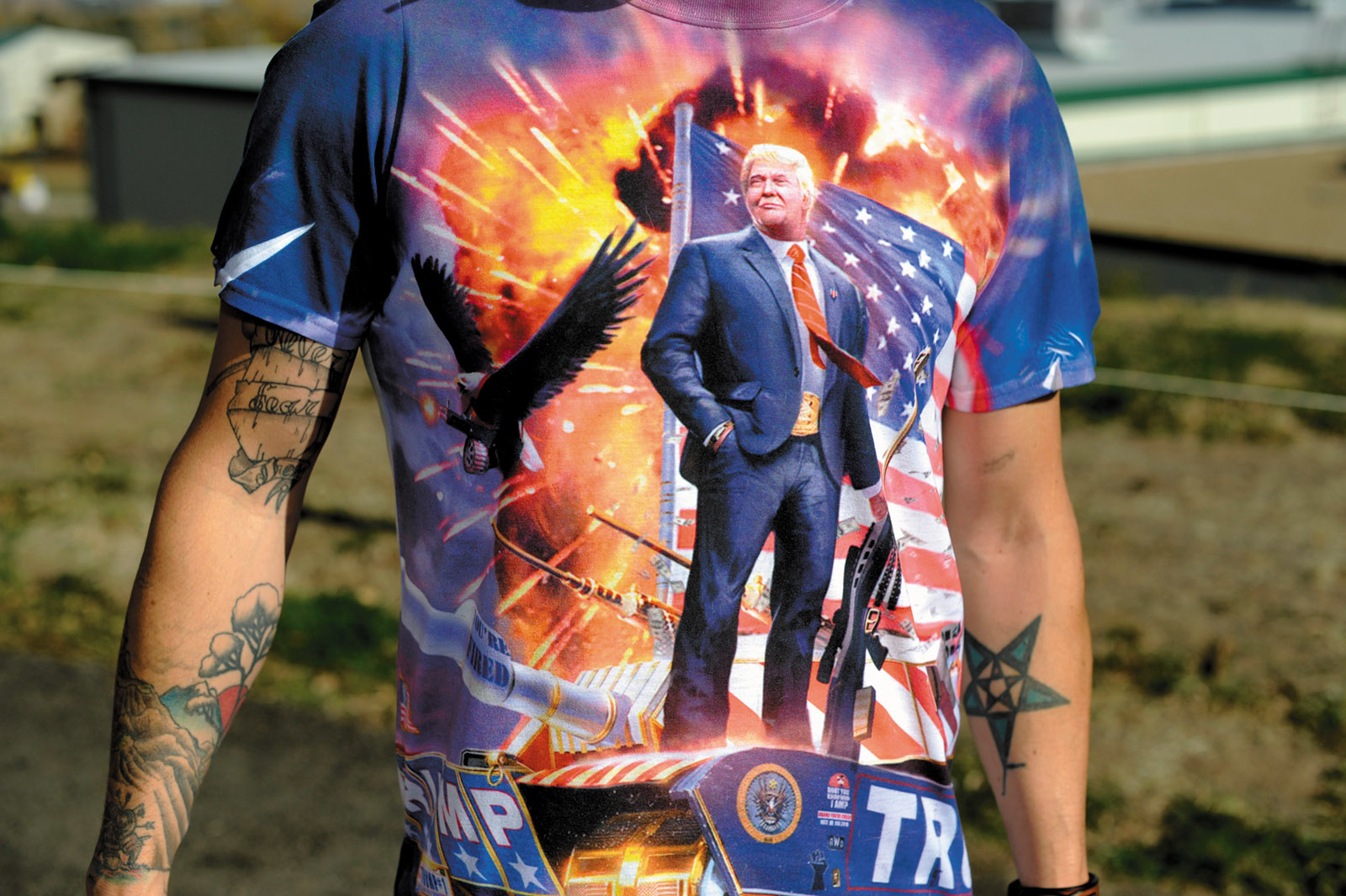Whatever else one might say about the just-concluded 2016 presidential election, one thing is certain: FBI Director James Comey played an outsized and exceptionally inappropriate part. His highly prejudicial announcement on October 28, just eleven days before the election, that he had reopened an investigation into Hillary Clinton’s private e-mail server ensured that the final critical days of the campaign were taken up with innuendos and suppositions set off by his action.
When Comey then announced on November 5, just two days before the election, that upon further review he had again found no basis to believe that Clinton had committed any crime, it only underscored the impropriety of his October 28 announcement. Had he conducted the review in confidence, as Justice Department rules require, the entire matter would have been resolved without interfering with the election. As it was, his October 28 announcement dramatically shifted the trajectory of the campaign, deflected attention from Donald Trump’s own considerable troubles, and inevitably influenced the choices of many early voters.
Comey made the renewed investigation public against Justice Department policy and rules, and over the objections of the attorney general and several other Justice Department officials, even though he had not even seen the new evidence, much less determined that it hinted at any wrongdoing on Clinton’s part. The announcement predictably played right into the hands of Trump, who immediately took the occasion to repeat his charge that Clinton should be locked up. None of this should have happened; under long-standing Justice Department practice, Comey should have kept silent about the fact of further investigation, especially so close to an election.
Whether Comey’s imprudent intervention changed the outcome of the presidential election, the damage to the integrity of both the political and criminal processes has been done. The criminal process has been politicized, and the political process has been tainted by misuse of official power. The question that remains is what should happen now. At a minimum, the Justice Department policies that Comey violated must be strengthened and formalized to ensure that this never happens again.
The first rule Comey disregarded requires law enforcement officials to avoid public comment on ongoing investigations. The Justice Department’s guidelines on “Disclosure of Information Concerning Ongoing Investigations,” set forth in the US Attorneys’ Manual, provide that, as a general matter, officials “shall not respond to questions about the existence of an ongoing investigation or comment on its nature or progress.” The rule recognizes that on “matters that have already received substantial publicity” or where public safety requires, “comments about or confirmation of an ongoing investigation may need to be made.” But that exception is plainly a narrow one. The general no-comment rule is designed to prevent prosecutors and law enforcement officials from using their authority to cast aspersions on the reputations of citizens; their job is to conduct investigations, not offer public character assessments.
Comey’s original sin in this regard was his highly unusual press conference in July in which, rather than simply reporting that he had closed the e-mail investigation because he had found no evidence of Clinton violating any laws, he went on to castigate her as “extremely careless.” The federal criminal code is byzantine, to be sure, but carelessness is not a federal crime, and therefore, as FBI director, Comey had no business offering his personal opinion. The authority of the nation’s top law enforcement investigator comes with responsibility to weigh one’s words and actions carefully; if anything, it was Comey who was “extremely careless.”
Having violated the rule against public comment once, Comey then went further, using that violation to justify another infraction. In an e-mail to his staff, he defended his extraordinary step of publically announcing the resumption of a closed criminal investigation by stating that he had promised to keep Congress informed when he testified in July about the investigation’s closure.
The job of the FBI, however, is not to offer Congress public progress reports on criminal investigations, but to conduct those investigations in confidence unless and until they warrant an indictment or dismissal. And Comey’s October 28 “report,” a brief letter to Congress, was bound to be misleading. The announcement followed the discovery of e-mails of Huma Abedin, Clinton’s chief of staff at the State Department, on the computer of Abedin’s now-estranged husband, Anthony Weiner, who is under a separate investigation for allegedly “sexting” with a minor. Neither Comey nor his staff had actually read any of the newly discovered e-mails when he first notified Congress, and therefore had no basis for believing that they constituted evidence of wrongdoing. But the announcement nonetheless set off a flurry of renewed accusations against Clinton.
The second policy Comey transgressed is even more fundamental. That policy, which has been endorsed by attorney generals of both parties for decades, requires law enforcement officers to avoid filing even completed indictments against candidates for political office within sixty days of an election. As Jamie Gorelick and Larry Thompson, former deputy attorney generals in the Clinton and George W. Bush administrations respectively, explained in The Washington Post:
Advertisement
Decades ago, the department decided that in the 60-day period before an election, the balance should be struck against even returning indictments involving individuals running for office, as well as against the disclosure of any investigative steps. The reasoning was that, however important it might be for Justice to do its job, and however important it might be for the public to know what Justice knows, because such allegations could not be adjudicated, such actions or disclosures risked undermining the political process. A memorandum reflecting this choice has been issued every four years by multiple attorneys general for a very long time, including in 2016.
This policy applies to all elections, from those for local school boards to those for our nation’s highest office. Under this policy, even if the FBI had acquired enough evidence to charge Hillary Clinton formally with knowingly transmitting classified information or otherwise violating criminal law, that fact should not have been made public until after the election. Yet Comey chose to go public, just eleven days before a presidential election, without even a basis for believing that the “new” evidence he had come across was actually new, much less evidence of any crime.
Not only had FBI officials not reviewed the e-mails on Weiner’s computer at the time of Comey’s October 28 announcement. They had not even received a warrant to examine them. (They only got the warrant the following Sunday.) Accordingly, the FBI had no basis for believing that the e-mails offered any evidence of criminal conduct on Clinton’s part. In fact, we now know, they provided no incriminating evidence, and many were simply duplicates of e-mails previously reviewed.
As important and widely accepted as the policy against interfering in impending elections reportedly is within the Justice Department, however, it is not formally reflected in any written rule. The memorandum that Gorelick and Thompson cite refers only to investigations of “election crimes,” not other crimes. And the sixty-day rule is also not reflected in that memo. It’s “custom,” I’m told. But if we are to avoid repetition of this blunder, the policy should be reduced to writing and clearly codified.
Some have argued that Comey violated the Hatch Act in making the renewed investigation public, but I see no evidence to support that charge. The Hatch Act makes it a crime for federal employees to use their “official authority or influence for the purpose of interfering with or affecting the result of an election.” Comey’s October 28 announcement certainly affected the results of the 2016 election, but there is no evidence that he took his action for that purpose, and absent such a motive, the Hatch Act is not implicated.
Indeed, Comey prides himself on being independent. While serving as deputy attorney general under President George W. Bush, he bravely stood up to White House Counsel Alberto Gonzales, who was seeking to pressure the hospitalized and sedated Attorney General John Ashcroft to approve an NSA program whose legality many Justice Department officials had questioned. But independence can be taken too far. As another former deputy attorney general for George W. Bush, George Terwilliger, said, commenting on Comey’s recent actions, “There’s a difference between being independent and flying solo.” There are strong reasons for rules limiting public comment on ongoing criminal investigations and interference in upcoming elections. A heightened sense of one’s own “independence” doesn’t excuse breaking those rules.
Comey was no doubt worried that, had he not informed Congress of the new evidence, and had it come out after the election that he had kept it quiet—and assuming the e-mails were of any importance—he might have been subject to criticism from his own Republican Party and from Donald Trump. But such criticism is one of the burdens a responsible government official must bear. Following the rules was the right thing to do, even if it might have come at some cost to Comey’s reputation in his own party. By elevating his concern about his reputation above the rules, Comey will forever be remembered as the FBI director who abused the power of his office to interfere baselessly in an imminent presidential election.
—November 9, 2016



